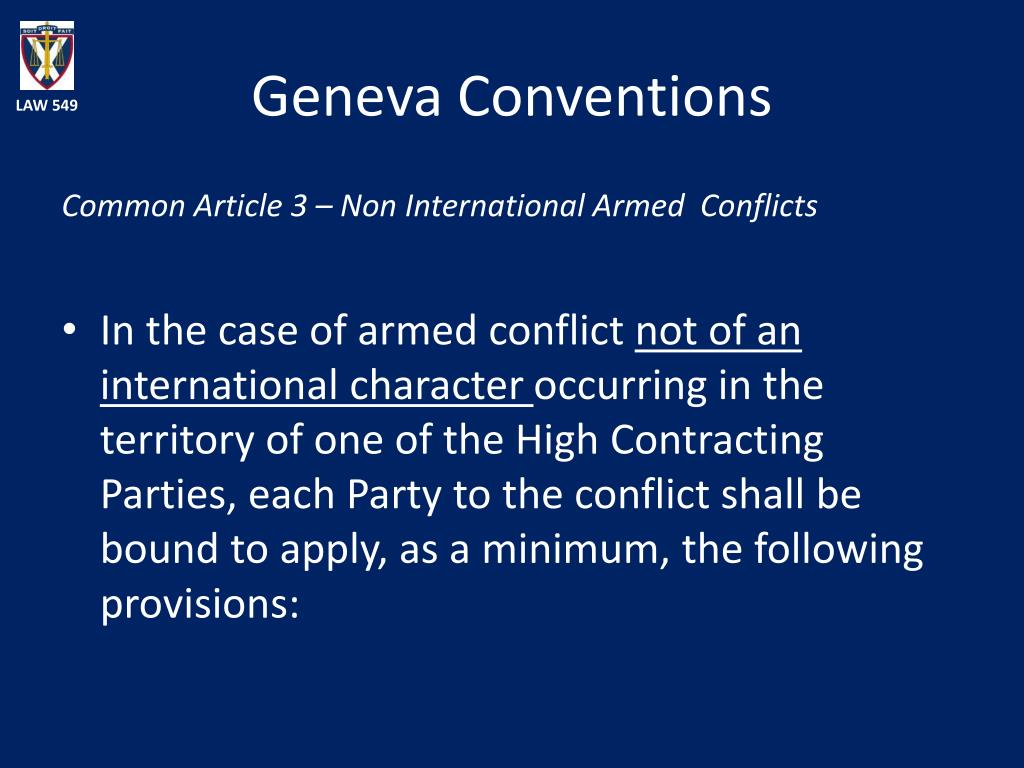

This means that each interned person must be released as soon as the reasons which necessitated his/her internment no longer exist. Therefore, internment is a security measure, and cannot be used as a form of punishment. If justified by imperative reasons of security, a party to the conflict may subject civilians to assigned residence or to internment. The fourth 1949 Geneva Convention and Additional Protocol I also provide extensive protection for civilian internees during international armed conflicts. IHL also defines minimum conditions of detention covering such issues as accommodation, food, clothing, hygiene and medical care. They are protected against any act of violence, as well as against intimidation, insults, and public curiosity. POWs must be treated humanely in all circumstances.

The detaining power may prosecute them for possible war crimes, but not for acts of violence that are lawful under IHL. They must be released and repatriated without delay after the end of hostilities. Their detention is not a form of punishment, but only aims to prevent further participation in the conflict. POWs cannot be prosecuted for taking a direct part in hostilities. The third 1949 Geneva Convention also classifies other categories of persons who have the right to POW status or may be treated as POWs. POWs are usually members of the armed forces of one of the parties to a conflict who fall into the hands of the adverse party. The status of POW only applies in international armed conflict. They were refined in the third 1949 Geneva Convention, following the lessons of World War II, as well as in Additional Protocol I of 1977. The rules protecting prisoners of war (POWs) are specific and were first detailed in the 1929 Geneva Convention.


 0 kommentar(er)
0 kommentar(er)
